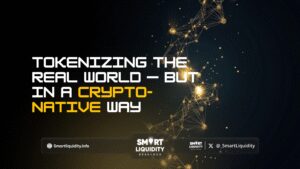Metaverse, Social Rules, and Ethical Considerations


The Metaverse, an expansive digital universe, promises a new frontier of interaction, blending augmented reality (AR), virtual reality (VR), and blockchain technology. As this virtual realm grows, it introduces unique social dynamics and ethical challenges that necessitate careful consideration and governance to ensure a harmonious and equitable digital future.
Defining the Metaverse
The Metaverse is an interconnected digital space where users can interact with each other and digital environments through immersive technologies like VR and AR. Powered by blockchain, it offers decentralized ownership, allowing users to create, trade, and own digital assets securely. Unlike traditional internet experiences, the Metaverse provides a persistent, shared environment that blurs the line between physical and digital realities. This concept, popularized by science fiction, is now becoming a tangible reality with platforms like Decentraland, The Sandbox, and Meta’s Horizon Worlds leading the charge.
The Metaverse is not just a single platform but a network of interconnected virtual worlds, each with its own rules, economies, and cultures. It combines aspects of social media, gaming, and online economies, creating a multifaceted digital ecosystem. Blockchain technology underpins many of these worlds, ensuring transparency, security, and decentralized governance. Smart contracts enable automated transactions and interactions, further enhancing the user experience and fostering innovation within the Metaverse.
Social Dynamics in the Metaverse
Social dynamics within the Metaverse are complex and multifaceted, influenced by the design and governance of each virtual world. Users assume digital identities, often represented by avatars, that allow for self-expression and interaction. These avatars can range from hyper-realistic representations to fantastical creations, giving users the freedom to explore different aspects of their identity.
The Metaverse enables the formation of virtual communities, where users can connect based on shared interests, goals, or activities. These communities can range from casual social gatherings to professional networks and collaborative creative projects. The decentralized nature of many Metaverse platforms allows for user-driven governance, where communities can create and enforce their own rules and norms.
However, the anonymity afforded by digital identities can also lead to challenges, such as harassment, bullying, and the spread of misinformation. Social norms and rules must evolve to address these issues, promoting respectful and inclusive interactions. Developers and platform owners play a crucial role in shaping these dynamics through design choices, moderation policies, and community guidelines.
Ethical Challenges in Metaverse Development
The development of the Metaverse raises several ethical challenges that must be addressed to ensure a fair and equitable digital landscape. One major concern is digital inclusion. Access to the Metaverse requires advanced technology and stable internet connections, potentially excluding marginalized groups. Ensuring that the benefits of the Metaverse are accessible to all requires efforts to bridge the digital divide and promote inclusivity.
Privacy is another critical issue. The immersive nature of the Metaverse means that vast amounts of personal data are collected, including biometric information, behavior patterns, and social interactions. Protecting this data from misuse and ensuring user consent is paramount. Blockchain technology can enhance privacy by allowing users to control their data, but robust policies and regulations are still necessary to prevent abuse.
Additionally, the Metaverse must grapple with issues of intellectual property. As users create and trade digital assets, clear frameworks for ownership, copyright, and fair use are essential. Blockchain can facilitate transparent and immutable records of ownership, but legal clarity is needed to protect creators and consumers.
Digital Citizenship and Etiquette
Digital citizenship in the Metaverse involves understanding and adhering to the social norms and ethical guidelines of virtual communities. It requires users to act responsibly, respect others, and contribute positively to the digital ecosystem. Just as in the physical world, digital citizenship encompasses behavior such as kindness, honesty, and respect for others’ rights and privacy.
Etiquette in the Metaverse extends to interactions between avatars, the use of digital assets, and participation in community activities. Users should be mindful of cultural differences and the diverse backgrounds of other participants. Encouraging empathy and understanding can foster a more inclusive and respectful virtual environment.
Education plays a vital role in promoting digital citizenship. Users must be informed about the potential risks and responsibilities of participating in the Metaverse. This includes understanding the implications of data sharing, the importance of digital security, and the ethical considerations of creating and consuming digital content.
Legal and Regulatory Framework
Establishing a legal and regulatory framework for the Metaverse is essential to address the complex issues that arise in this digital space. This framework must balance innovation with protection, ensuring that users’ rights are safeguarded while fostering an environment conducive to technological advancement.
One challenge is determining jurisdiction. The Metaverse transcends national borders, making it difficult to apply traditional legal systems. International cooperation and the development of global standards may be necessary to effectively regulate this space. Issues such as digital property rights, contractual disputes, and liability must be addressed through comprehensive and adaptive legal frameworks.
Consumer protection is also crucial. Users need assurance that their digital assets are secure and that they have recourse in case of fraud or disputes. Regulatory bodies must work with developers to establish standards for transparency, security, and accountability.
Furthermore, addressing the ethical implications of AI and automation in the Metaverse is vital. As AI-driven systems play a larger role in shaping virtual experiences, ensuring that these systems are fair, unbiased, and transparent is paramount. Ethical guidelines and regulatory oversight can help prevent abuses and ensure that AI is used responsibly.
Conclusion
The Metaverse represents a transformative evolution in digital interaction, offering vast potential for social connection, creativity, and economic opportunity. However, its development must be guided by thoughtful consideration of social dynamics, ethical challenges, and regulatory frameworks. By fostering digital citizenship, promoting inclusivity, and establishing robust legal standards, we can build a Metaverse that enhances our digital lives while upholding the values of fairness, respect, and innovation. The journey to this new frontier requires collaboration among developers, users, and policymakers to ensure that the Metaverse remains a positive and enriching space for all.




